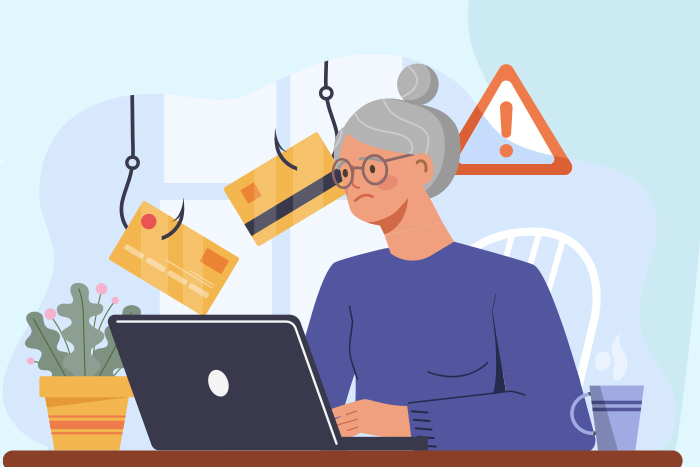For Seniors: Protecting Yourself From Identity Theft
It feels like everything is online these days—our bank accounts, our Social Security numbers, even our medical records. And while technology has made life more convenient, it’s also created new risks. One of the biggest? Identity theft.
Identity theft is when someone steals your personal information and uses it to pretend to be you. They might open credit cards, collect benefits, or file taxes in your name. It can lead to lost money, damaged credit, and a lot of stress.
Seniors are especially at risk. That’s why it’s so important to know how identity theft works—and what you can do to protect yourself. A few small steps can give you peace of mind and help keep your personal information safe.
What is identity theft?
Identity theft happens when someone uses your personal details—like your name, Social Security number, bank account, or Medicare ID—without your permission.
It can happen in many ways:
A thief might steal your wallet or go through your mail.
Scammers may call pretending to be from Medicare, Social Security, or your bank.
Criminals can hack into online accounts or trick you into giving them private info through fake emails (also called “phishing”).
Once someone has your information, they can:
Open credit cards or loans in your name
File a fake tax return to get a refund
Access your bank or retirement accounts
Use your Medicare benefits
Commit crimes using your identity
Even if they don’t steal your money directly, the damage to your credit and reputation can take months—or even years—to fix.
Signs Your Identity May Have Been Stolen
It’s not always obvious, but here are some warning signs that your identity may have been stolen:
Bills or statements you don’t recognize
Calls from debt collectors for things you didn’t buy
Medical claims you didn’t make
Your tax return gets rejected because one has already been filed
Bank withdrawals or charges you didn’t authorize
If something feels off, don’t ignore it. The sooner you act, the better.
How to Protect Yourself
You don’t have to be a tech expert to keep your identity safe. Here are some simple, effective steps:
Shred personal papers before throwing them away—especially anything with your Social Security number, bank info, or medical details.
Check your bank and credit card statements regularly. Report anything suspicious right away.
Don’t share personal info over the phone unless you made the call to a trusted number. Scammers often pretend to be from Medicare, Social Security, or your bank.
Use strong passwords for online accounts—and avoid using the same password everywhere.
Review your credit report at least once a year. You can get a free report at AnnualCreditReport.com.
Keep your Medicare card and Social Security card in a safe place—not in your wallet.
Be cautious with emails or texts asking for personal info. If something feels off, call the company directly to check.
You can also consider identity theft protection services, which can monitor your credit, alert you to changes, and help you recover if your identity is stolen. Some banks or credit cards offer this service, and you can also find independent providers.
Why Protecting Your Identity Matters
Recovering from identity theft can be a long, frustrating process. You may have to file police reports, work with your bank and/or credit card company, and prove that certain charges or debts weren’t yours. Some seniors have even had benefits delayed or medical records confused because of identity theft.
Taking small steps now can save you a lot of trouble later—and help you feel more in control.
Is identity theft protection worth it?
Here are a few things to think about as you’re considering whether to purchase identity theft protection:
Do you shop online or do online banking?
Would it be hard to pay bills or fix your credit if something went wrong?
Do you want extra help keeping an eye on your credit and accounts?
If you answered yes to any of these, an identity theft protection service might bring peace of mind.
You’ve worked hard to build a safe and stable life—protecting your identity is one way to keep it that way.
Sources:
Federal Trade Commission (FTC): Identity Theft
NerdWallet: How to Prevent Identity Theft

